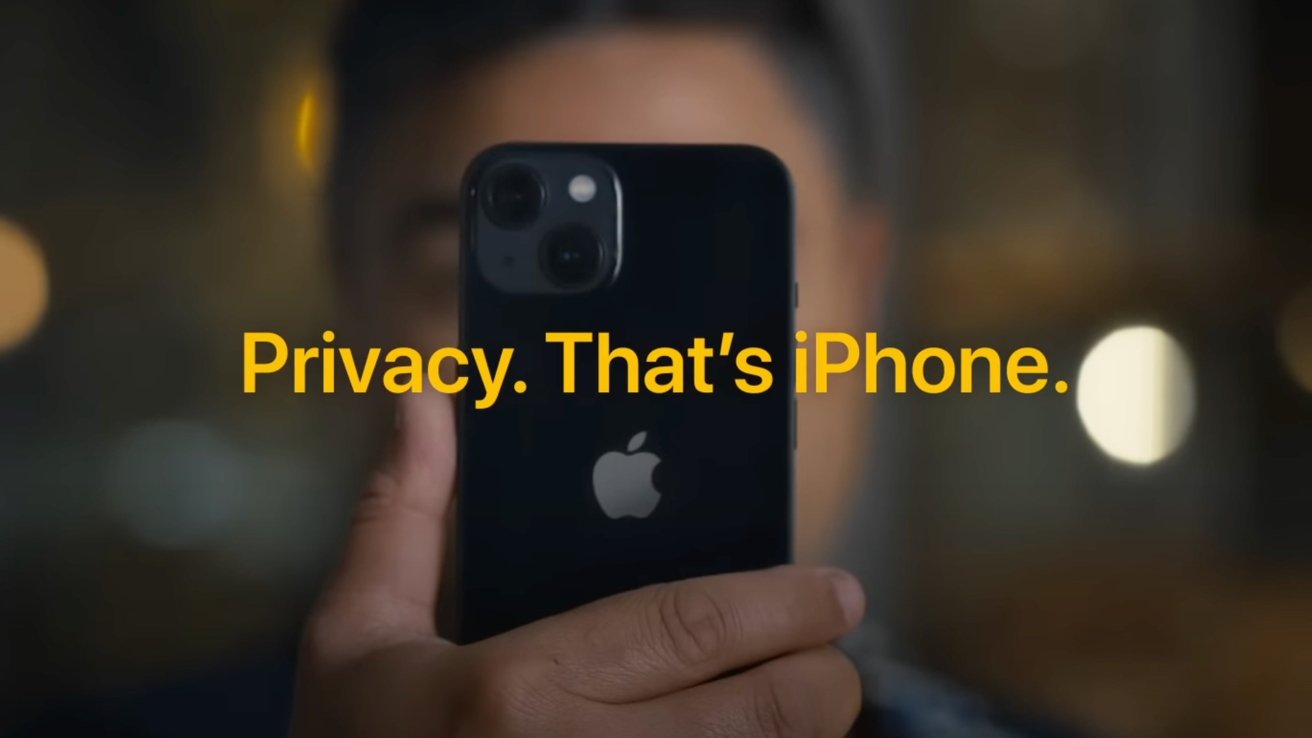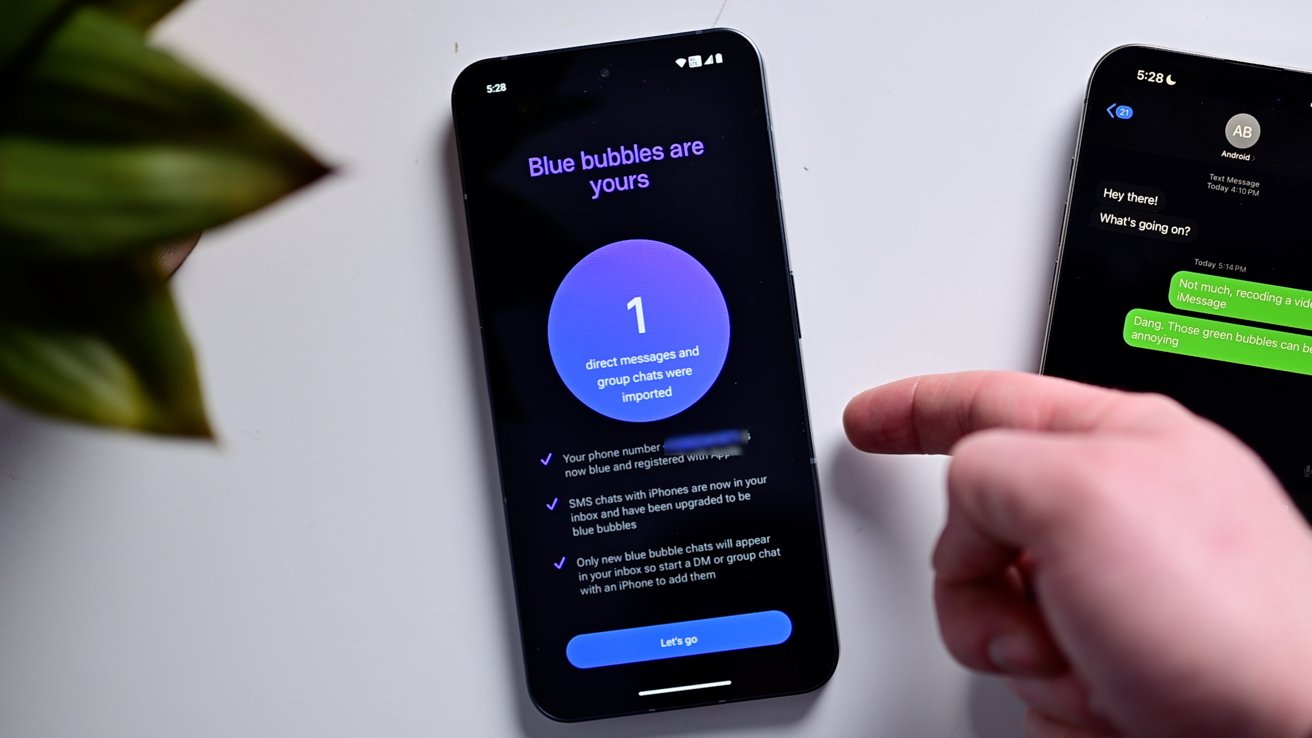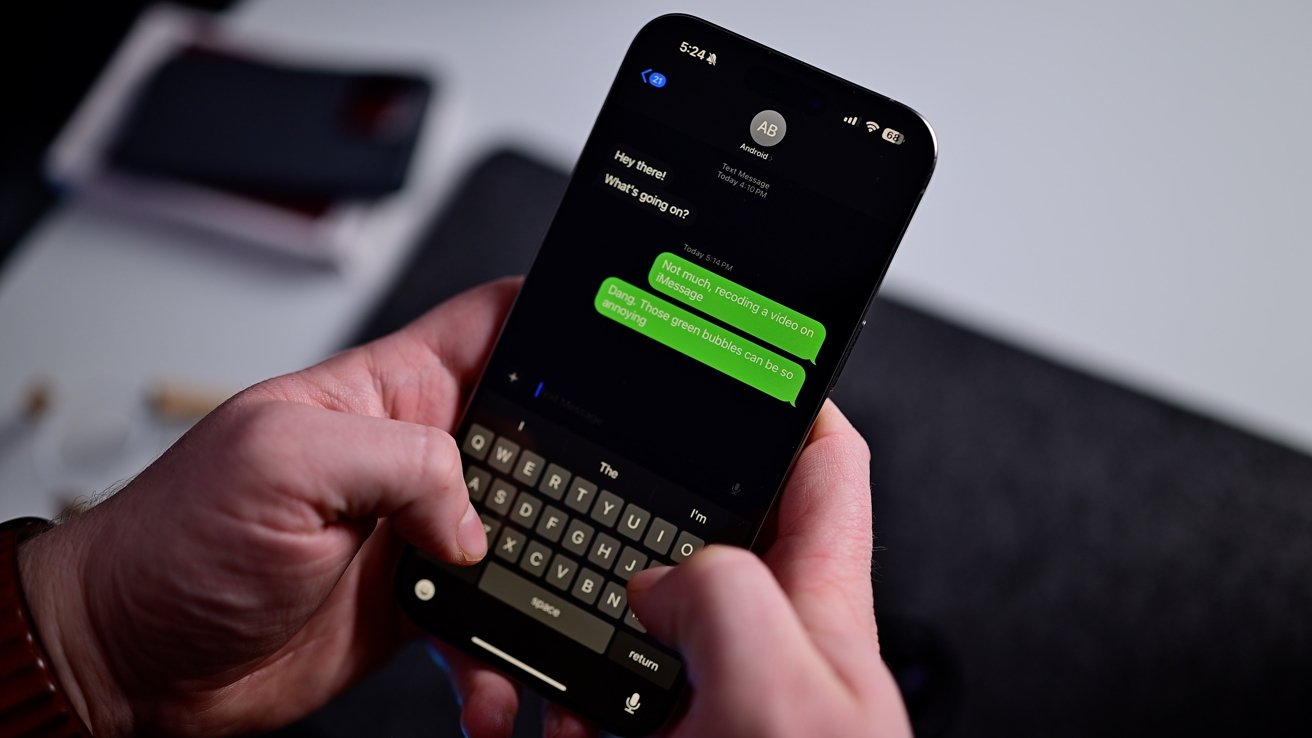Apple and Android users deserve better universal chat than Beeper mini
The iMessage cat-and-mouse game Apple, Beeper Mini and others in the Android ecosystem are playing makes for exciting headlines but a miserable user experience for everybody — and we all deserve better.
First, let's acknowledge that cross-platform messaging is a bloody mess. But neither Apple nor Beeper are making things easier for the rest of us at the moment.
Apple and the makers of the Android app Beeper Mini have been involved in a back-and-forth game for the past week. In short, Beeper Mini promises to turn Android users safely into iPhone users' blue bubble friends. Apple near-immediately put a stop to it, owing to inherent security risks.
The tough thing here is that both companies have a point. While there's a solution in the wings, Beeper Mini isn't it.
Staying on Message
You may remember that the Android-based Nothing Phone disastrously promised this capability in November. But no sooner was it announced then it was shut down, hard.
The Nothing Chat app that facilitated this functionality appeared to be little more than a reskinned version of the already-notorious messaging app Sunbird. The company promised end-to-end encryption (E2EE), assuming you were willing to trust them with your iMessage login credentials.
Big mistake, it turns out. In fact, messages, were publicly available in plaintext. It was an unmitigated disaster, and quickly withdrawn from public release.
Beeper Mini's developers say they're different. The app builds on the work of a 16-year-old high school student who has purportedly reverse-engineered the iMessage protocol.
Unlike Nothing Chats and, for that matter, Beeper's own Beeper Cloud service, there's no server standing in the middle to mitigate the flow of information between Android handsets running Beeper Mini and the Apple ecosystem.
Apple's not buying it. The company declared that Beeper Mini presents "significant risks to security and privacy" and shut down its access on Friday.
Apple's not wrong here.
It doesn't matter if the solution makes you to put your iMessage credentials on a server in plaintext, like Nothing Chat's stupid and badly implemented system. Or if it's a clever reverse-engineering of iMessage protocols to spoof your Android phone to look like an iPhone.
Either way, Apple can't guarantee the safety and security of iMessages beyond its borders. And what's more, it shouldn't.
On Monday, Beeper released an update to work around Apple's mitigation. This is certainly not the last we've heard about Beeper Mini or about Apple's reaction.
The cat-and-mouse game has raised the ire of politicians, too. Senator Elizabeth Warren (D-MA) in a post to X over the weekend accused Apple and other tech companies of "protecting profits by squashing competitors" by preventing Beeper Mini from working. She missed the point entirely to score political points, but that's not really the issue here.
The end is in sight
This latest imbroglio over blue versus green bubbles on text messages will likely be resolved in 2024, once Apple delivers support for Rich Communication Services (RCS).
Apple's support for RCS is a big validation of RCS in general. The standard, developed by the GSM Association, has already been adopted by many Android handset makers and software developers, and it provides a fundamentally richer and better experience than SMS or MMS have.
A lot of the technical problems iPhone users have with their green bubble buddies will go away with RCS. It'll be less of a hassle to share high-res photos and videos, participate in group messaging and do things like share locations more easily.
And if there's more than a technical problem about those green bubbles, then iPhone users will need to get over it. RCS should grant effective parity technologically, so there's no reason to be a jerk to those with them.
But even then, there's going to be a hitch. Apple says it will support RCS Universal Profile, the standard as published by the GSMA, and that profile doesn't currently support end-to-end encryption (E2EE).
E2EE is supported on Android handsets currently thanks to Google's own proprietary extension. And Apple isn't going to hitch its horse to that wagon.
Instead, Apple said that it will work with the GSMA to add encryption to the universal standard.
So Android users, bear with us for a while longer, as 2024 looks to be a sea change in the way we all chat with each other. In the interim, be very skeptical of "blue bubble" solutions for your Android handset — and don't expect Apple to just take a back seat when new products promising a solution crop up.
 Peter Cohen
Peter Cohen
















 Amber Neely
Amber Neely
 Thomas Sibilly
Thomas Sibilly
 AppleInsider Staff
AppleInsider Staff
 William Gallagher
William Gallagher
 Malcolm Owen
Malcolm Owen
 Christine McKee
Christine McKee










15 Comments
This has been a solved problem. Instead of Android users being obsessed with being Green bubbles SIGNAL and WHATSAPP are both existing, multi-platform End-to-End encrypted chat apps with high quality full features, video, audio etc.
All of this has existed for *years* yet I see no mention of either app in your article.
Not to mention Google has had 12 years to develop a dominate chat app but has developed and killed a dozen or so along the way because they can't monetize the chats if they are encrypted.
The solution exists, it's called WhatsApp and Signal. Soon RCS with the help of Apple adding End to End encryption to it will be available and all those android users with the dream of being blue bubble living rent free in their head will have their day I guess.
I'll be turning RCS off.
Nah. Android users deserve the crap that is android. It was their choice and they got what they wanted.
Just use Signal. It’s free, open source, independently audited, cross-platform, and has better security and privacy than iMessage.
Replace “deserve” with “feel entitled” and this would be more accurate.